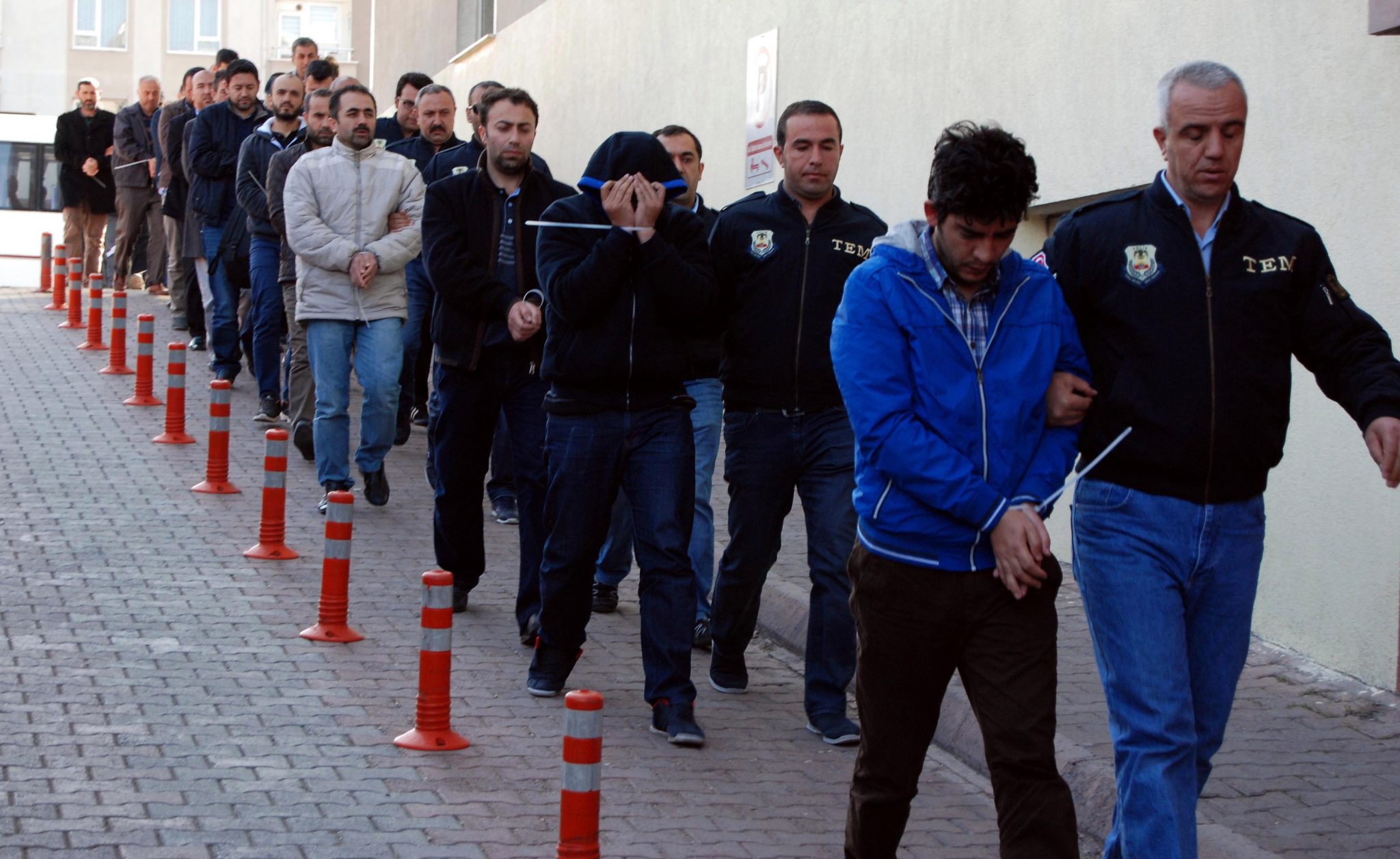
by Fulya OZERKAN
Agence France-Presse
ISTANBUL, Turkey – Turkey on Wednesday detained more than 1,000 people in a huge new crackdown against alleged supporters of a cleric accused of orchestrating the coup bid against President Recep Tayyip Erdogan.
The dawn raids across the country — seeking more than 3,000 suspects — come just over a week after Erdogan narrowly won a controversial referendum on ramping up his powers.
They are the latest indication Turkey intends no let-up in the fight against its perceived enemies after the vote, with fighter jets Tuesday pounding Kurdish militant targets in Iraq and northern Syria.
A total of 1,120 suspects have so far been detained, the official Anadolu news agency said.
Anadolu said 4,672 suspects were sought — of whom 1,448 are already in jail — meaning that a total of 3,224 arrest warrants were issued.
About 8,500 police officers were involved in the nationwide operation, Anadolu reported, adding that arrest warrants had been issued for 390 suspects in Istanbul alone.
Turkish authorities blame US-based Muslim cleric Fethullah Gulen for masterminding the July 2016 failed military coup that aimed to oust Erdogan from power but he denies the charges.
Ankara accuses the Hizmet (Service) movement Gulen leads of being a “terror organisation”, although the group insists it is a peaceful organisation promoting moderate Islam.
The government has repeatedly asked the United States to extradite Gulen, who has been living in exile there since 1999.
About 47,000 people have already been arrested in Turkey under a nine-month state of emergency in place since the coup bid, a crackdown whose magnitude has raised alarm in the West.
The Turkish parliament just ahead of the referendum extended the state of emergency by another three months to July 19.
After the latest sweep, German foreign ministry spokesman Sebastian Fischer said Berlin “has taken note of the mass detentions with concern”, urging respect for rule of law.
‘7,000 suspects wanted’
The Hurriyet newspaper reported that arrest warrants had been issued against a total of 7,000 suspects across Turkey, citing unidentified sources.
The suspects are so-called “secret imams” of Gulen suspected of infiltrating themselves into the police or other state institutions, it reported.
Erdogan has repeatedly said he will wipe out the “virus” of Gulen from state institutions after the failed coup.
The vast operation targeted big cities such as Istanbul as well as Izmir in western Turkey and Konya in the Anatolian heartland.
Prime Minister Binali Yildirim had hinted in a television interview this month that a new anti-Gulen crackdown had been in the pipeline.
The ‘Yes’ camp won 51.41 percent of the vote in the April 16 referendum on creating a presidential system in Turkey but opponents claim the result would have been reversed in a fair poll.
The main opposition Republican People’s Party (CHP) said Wednesday it would challenge last-minute changes to voting rules in the referendum at the Strasbourg-based European Court of Human Rights.
Analysts have said Erdogan, after his poll win, can choose between new confrontation or reconciliation with the West but in recent days tensions have risen further.
Turkish warplanes killed more than two dozen Kurdish fighters Tuesday in strikes in Syria and Iraq, angering the United States.
Ankara said it had carried out the strikes against “terrorist havens”, vowing to continue acting against groups it links to the outlawed Kurdistan Workers’ Party (PKK).
In northeast Syria, strikes targeted the Kurdish People’s Protection Units (YPG) — who are leading the offensive against the Islamic State stronghold Raqa.
The US State Department said it was “deeply concerned” the strikes were conducted “without proper coordination either with the United States or the broader global coalition” against IS. Ankara said it had informed the US and Russia before the strikes.
The Parliamentary Assembly of the Council of Europe (PACE) voted Tuesday to reopen a monitoring probe into Turkey over rights concerns, sparking anger from Ankara.








